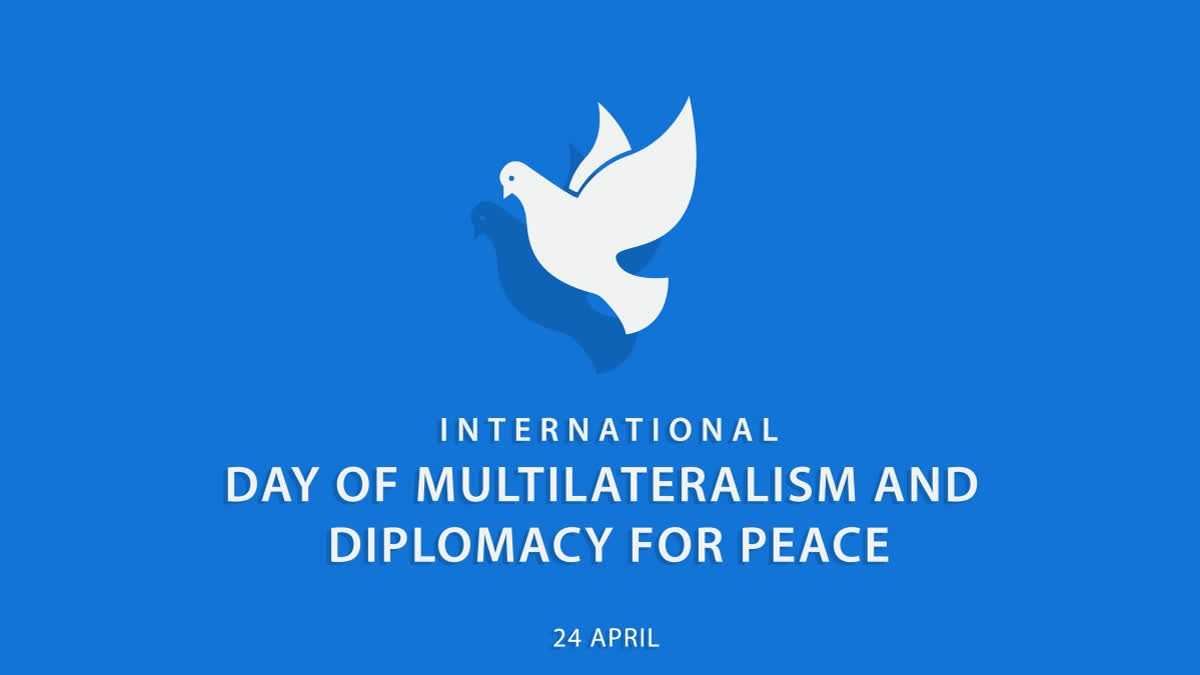New Delhi: In foreign policy, we often see our world leaders emphasising the need for multilateralism given the changing global dynamics, especially when the world is almost divided in views and opinions in the midst of the ongoing conflicts in West Asia or the Russia-Ukraine conflict for that matter.
The International Day of Multilateralism and Diplomacy for Peace is celebrated annually on 24 April. The Day acknowledges the use of multilateral decision-making and diplomacy in achieving peaceful resolutions to conflicts among nations. This day aims to promote the principles of multilateralism and diplomacy in resolving global challenges and conflicts.
The observance also serves as a reminder of the importance of the United Nations and other multilateral organisations in facilitating cooperation and collective action among nations.
India as a leading democracy, has often reiterated its deep commitment to multilateralism and stressed that the global agenda should focus much more on the genuine, pressing needs of the international community, which currently are energy security concerns, food security concerns, fertilizer and health concerns, debt concerns and trade disruption concerns.
History behind the International Day of Multilateralism and Diplomacy for Peace
The International Day of Multilateralism and Diplomacy for Peace is a relatively new observance. The first International Day of Multilateralism and Diplomacy for Peace was celebrated on April 24, 2019. It was first proposed by the delegation of Azerbaijan to the United Nations in 2018 as a way to promote and reinforce the principles of multilateralism and diplomacy in international affairs.
The proposal, however, received support from a group of countries from different regions of the world, and on December 12, 2018, the United Nations General Assembly adopted a resolution declaring April 24th as the International Day of Multilateralism and Diplomacy for Peace.
The establishment of this observance was seen as a response to the growing challenges to the international rules-based order and the principles of multilateralism and diplomacy, as well as to promote peaceful conflict resolution and cooperation among nations.
The day aims to raise awareness of the importance of multilateralism and diplomacy in addressing global challenges and promoting sustainable development, human rights, and peace. It also recognises the role of the United Nations and other multilateral institutions in advancing these objectives.
In international relations, multilateralism refers to an alliance of multiple countries pursuing a common goal.



